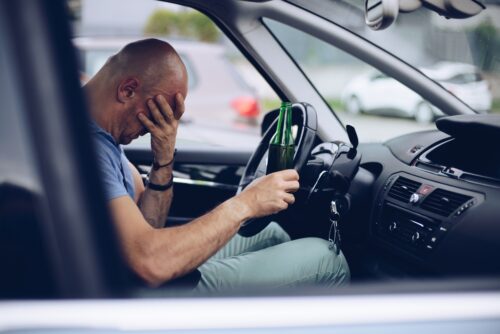
If you’re facing a driving while intoxicated (DWI) charge, your penalties will vary depending on the amount of alcohol in your system at the time of the arrest and whether this is a subsequent offense. If it is a subsequent offense, you will face escalating consequences. New Jersey imposes stricter penalties to discourage repeat offenders from drunk driving again to protect the general public from harm. Therefore, if you are a repeat DWI offender, please continue reading to learn whether a prior DWI conviction can aggravate your current DWI case and how a determined Middlesex County, New Jersey, DWI Lawyer can help you combat your charges to protect your future.
How will a prior DWI conviction influence my current case in New Jersey?
Generally, those charged with a first-offense DWI are charged with a misdemeanor. However, if you have been charged with a third DWI offense in New Jersey within ten years, it will escalate to a Class D felony. When your DWI turns into a felony charge, you could be subjected to harsher penalties, including a lengthy prison sentence and a permanent criminal record that will haunt you for the rest of your life.
Will I face harsher penalties for a subsequent offense?
In New Jersey, penalties for DWI become progressively harsher for repeat offenders as the legal system imposes more severe penalties as a deterrent against this dangerous driving behavior to keep the public safe. Therefore, a prior DWI conviction will significantly impact the legal consequences you may be subject to for this criminal offense. Typically, the court will consider the number and recency of prior DWI convictions when determining appropriate sentencing.
If you’re facing a DWI charge, you will likely face fines, license suspension, enrollment in an alcohol education program, installation of an ignition interlock device, and potential imprisonment. As mentioned above, the penalties for subsequent offenses will be more severe. That being said, you will likely face a longer license suspension period, potentially even having your driving privileges permanently revoked. For example, most first-time DWI offenders will be subject to a license suspension until they install an ignition interlock device, which must be used for three months, while those charged with a second or third DWI charge face a longer ignition interlock device suspension period of at least a year.
In addition, subsequent DWI offenses will result in more substantial fines. Individuals charged with a first-offense DWI charge may be subject to fines ranging from $300 to $500. However, second and third-time offenders will face more substantial fines of up to $1,000. Nevertheless, the most notable impact of a prior DWI conviction regarding sentencing is a criminal record. A criminal record can ruin one’s reputation, strain relationships, and limit employment opportunities.
If you or a loved one has been charged with a subsequent DWI offense, it is in your best interest to retain the legal services of an experienced lawyer from the legal team at the Law Offices of Aditya Surti, LLC, who is prepared to fight to shield you from your charges.